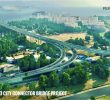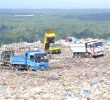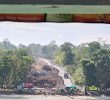“If we are going to look at the best disaster preparedness model, medical teams should be in place, including doctors, medical supplies as well as the health facilities” – Doctor Jean Lindo, Kalikasan Partylist
By KENETTE JEAN I. MILLONDAGA
Davao Today
DAVAO CITY, Philippines — In any disaster response, the government should be at the first line of defense.
This was emphasized by Doctor Jean Lindo of Kalikasan partylist following the December 2012 Pablo (International name: Bopha) tragedy that left 1,067 dead, 834 missing and over PHP 40 Billion-worth of damage in the region especially in the provinces of Compostela Valley and Davao Oriental.
Lindo said that the government should have learned from the experiences when Typhoon Sendong (International name: Washi) struck the Western part of Mindanao in 2011.
Sendong, a severe tropical storm, left 1,268 people dead, 85 missing and over PHP 2 Billion-worth of damage to agriculture, infrastructure and private properties.
“If we are going to look at the best disaster preparedness model, medical teams should be in place, including doctors, medical supplies as well as the health facilities,” Lindo said during the January 19 forum dubbed, “Mindanao in the Eye of the Storms: Typhoon Pablo-A Wake Up Call for Climate Justice” sponsored by Balsa Mindanao, a citizen-led movement for disaster response and climate justice advocacy.
Pablo victim-survivors said that the government has not unleashed the expected preparation for the recent disaster.
“Nag-BP ra man tong mga BHW sa baryo tapos naghatag og ginagmay nga mga tabletas (Barangay Health Workers only checked the blood pressure of the victims, then they distributed medicines),” Karlito Trangia, a victim of Pablo and spokesperson of Barog Katawhan, an organization of Pablo victims and survivors, told davaotoday.com.
He shared that the typhoon left many of the residents in the village sick with fever, cough and headache without much aid from government health authorities.
Joy Alconaba of the Women Studies and Resource Center (WSRC), and one of the volunteers for Balsa Mindanao said that Pablo survivors, including children and young adults, are psychologically and emotionally affected so that they are easily stressed and therefore, are vulnerable to diseases.
Alconaba cited the need for psychosocial interventions in these situations. “They are still at the grieving stage, young adults and children alike, especially those whose houses were barred down and whose family members were killed or missing.”
At the same time, she pointed out that they should also be getting healthy and clean food.
It was found out that there were some of the victims who received spoiled rice and even expired canned goods from the relief packs distributed by the government.
“Daot ang bugas nga gibukbok na (The rice is spoiled),” Dailyn Molina, a resident of Mt. Diwata in Monkayo town told davaotoday.com in an interview.
“Sigon pa sa ilang (DSWD) istorya nga naa daw to vitamins ug iron. Pero dili man to matawag nga vitamins o iron kay baho gyud. Gani gidala namo ang kan-on nga nalung-ag lain gyud sya. Murag naa syay balas balas [According to them (DSWD), the rice they distributed are fortified with vitamins and iron. But I don’t think that’s the case because the rice really smelled bad. We even brought the cooked rice and it’s really different from the other variety of rice distributed],” added Molina.
Children who ate the rice, Molina said, suffered from upset stomach.
Priscilla Razon, chief of the Department of Social Welfare and Development denied that the rice came from them, saying they only distribute rice of good quality.
Molina added that they suspected that even some of the canned goods were spoiled because of the foul smell of their contents. “The labels of some of the canned goods we received had been removed. I had to ask my daughter to throw them away,” Molina lamented.
Recipients from Mangayon village in Compostelan town, Compostela Valley have returned more than 10 relief packs to the DWSD on January 17, showing that the rice distributed to them during the Montevista barricade in January 15, are spoiled.
Beyond providing their immediate needs, WSRC’s Alconaba said a genuine rebuilding program could help a lot in the speedy recovery of the Pablo survivors. “Mas paspas ang recovery sa mga bata ug mga biktima kung rebuild gyud ang himoon. Hatagan og kapuy-an, pagkaon nga tarong, ug paagi para makalahutay (Recovery of the victims especially the children will be faster if there’s a genuine rebuilding program, that is, the provision of decent shelter, and means of living),” Alconaba said. (Kenette Jean I. Millondaga/davaotoday.com)









